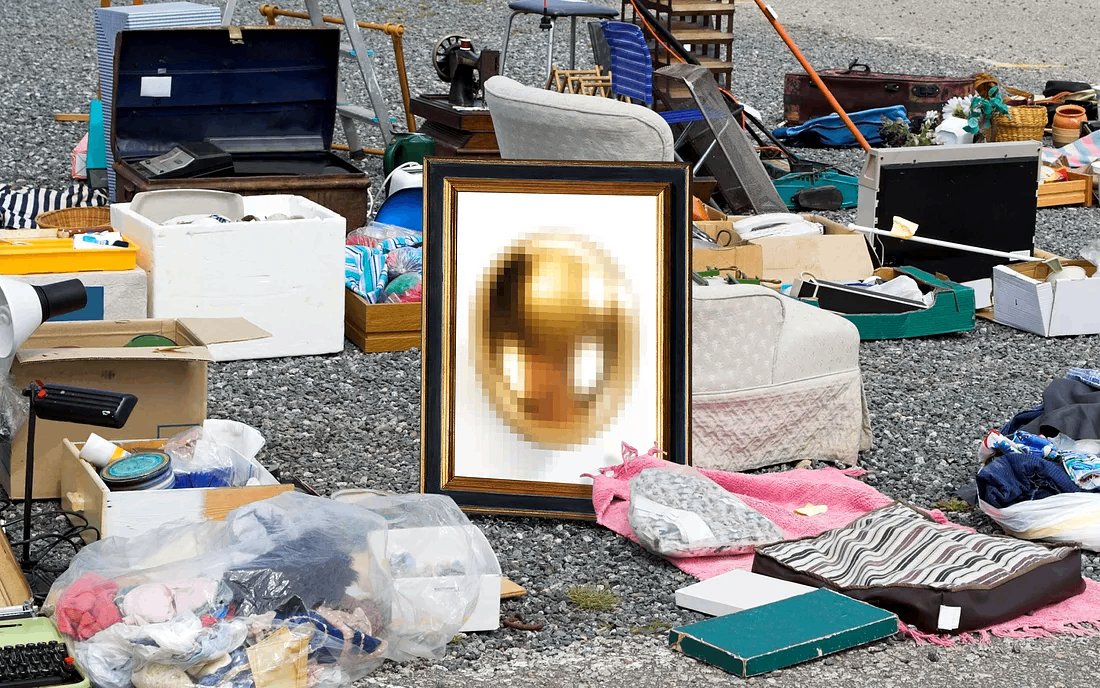テーマ:英語のお勉強日記(7815)
カテゴリ:NFT
An Oversupply of NFTs Is Going to Kill the Golden Goose
NFTの過剰供給が金のガチョウを殺すだろう
Welcome to the new tragedy of the commons
コモンズの新しい悲劇にようこそ

Illustration: Julia Moburg/Medium; source: Getty Imagesイラスト:ジュリア モバーグ/ミーデイアム; 出典:ゲッティーイメージ
James Surowiecki
ジェームズ・スロヴィエッキ著
Mar 30, 2023
2023年3月30日
In the 1950s, the Grand Banks off the coast of Newfoundland was, as it had been for centuries, one of the richest fisheries in the world, home to a massive and endlessly replenished population of cod. The fishery provided food for people across North America, and jobs to tens of thousands of fishermen and fish plant workers. But new technology — radar, sonar, electronic navigation systems, and massive drift nets — was allowing trawlers to fish for longer, and to take more fish with every trip. The result was that cod were being pulled from the ocean faster than they could replace themselves. In the early 1970s, the cod harvest collapsed, and while it rebounded temporarily, by the early 1990s the Grand Banks were effectively fished out. The Canadian government shut the fishery down, putting more than 35,000 people out of work.
1950年代、ニューファンドランド沖のグランドバンクスは、何世紀にもわたってそうであったように、世界で最も豊かな漁業の1つであり、タラの大量で際限なく補充された個体群の本拠地でした。漁業は北米中の人々に食料を提供し、何万人もの漁師と魚工場労働者に仕事を提供しました。しかし、レーダー、ソナー、電子航法システム、巨大な漂流網などの新しいテクノロジーにより、トロール船はより長く漁をすることができ、航海するたびにより多くの魚を取ることを可能にしていました。その結果、タラは世代交代の余地なく早く海から引き出されていました。1970年代初頭、タラの収穫は崩壊し、一時的に回復しましたが、1990年代初頭までにグランドバンクスは事実上漁獲がなくなりました。カナダ政府は漁業を閉鎖し、35,000人以上を失業させました。
What happened to the Grand Banks fishery was an example of what the ecologist Garrett Hardin famously called “the tragedy of the commons.” If there’s a common resource that everyone has an individual incentive to exploit, it will eventually be used up in the absence of regulation or communal norms. It’s a problem that’s not unique to fisheries. It helps drive deforestation and the depletion of water resources. And now we can see the tragedy of the commons at work in an unexpected place: the market for non-fungible tokens (or NFTs). In this case, though, instead of people aggressively taking as many fish out of the sea as they can, people are aggressively adding as many NFTs as possible to the market, trying to cash in before the bubble bursts. And just as the fishermen trying to catch as many fish as possible helped destroy the Grand Banks fishery, the people and institutions producing NFTs by the minute are only hastening the end of the NFT boom.
グランドバンクスの漁業に起こったことは、生態学者のギャレット・ハーディンが「コモンズの悲劇」と呼んだことで有名なものの例でした。誰もが搾取する個々のインセンティブを持っている共通のリソースがある場合、それは規制や共同体の規範がなければ最終的に使い果たされます。これは漁業に限った問題ではありません。それは森林破壊と水資源の枯渇を助長します。そして今、私たちは、非代替トークン(またはNFT)の市場という予想外の場所でコモンズの悲劇が働いているのを見ることができます。しかし、この場合、人々はできるだけ多くの魚を積極的に海から取り出すのではなく、バブルが崩壊する前に現金化しようとして、できるだけ多くのNFTを積極的に市場に追加しています。そして、できるだけ多くの魚を捕まえようとしている漁師がグランドバンクスの漁業を破壊するのを助長したように、NFTを生産する人々や機関は、NFTブームの終わりを早めているだけです。
History suggests that oversupply is a reliable way to end a collectible boom.
歴史は供給過剰が収集品ブームを終わらせる信頼性が高い方法であることを示唆します。
―――――――――――――――――続く――――――――――――――――――
下記URLから続きを読むことができます。また、図付きの元のレイアウトで読める原文ファイルも入手可能。今月1か月分のファイルは100円で取り寄せられますが、次の月からは600円に値上げします。
==============================
インターネット・コンピュータランキング
==============================
ネットサービスランキング
==============================
![[商品価格に関しましては、リンクが作成された時点と現時点で情報が変更されている場合がございます。] [商品価格に関しましては、リンクが作成された時点と現時点で情報が変更されている場合がございます。]](https://hbb.afl.rakuten.co.jp/hgb/36a4669d.509878a1.36a4669e.a1a50ee0/?me_id=1347504&item_id=10002370&pc=https%3A%2F%2Fthumbnail.image.rakuten.co.jp%2F%400_mall%2Ff302023-kainan%2Fcabinet%2Ffrp_goods%2Ffrp016%2F10815269.jpg%3F_ex%3D240x240&s=240x240&t=picttext)

![[商品価格に関しましては、リンクが作成された時点と現時点で情報が変更されている場合がございます。] [商品価格に関しましては、リンクが作成された時点と現時点で情報が変更されている場合がございます。]](https://hbb.afl.rakuten.co.jp/hgb/21492812.d14aaf9f.21492813.d663ddf0/?me_id=1380407&item_id=10000018&pc=https%3A%2F%2Fthumbnail.image.rakuten.co.jp%2F%400_mall%2Fshuuemura%2Fcabinet%2F07947415%2Fimgrc0124771893.jpg%3F_ex%3D240x240&s=240x240&t=picttext)
![[商品価格に関しましては、リンクが作成された時点と現時点で情報が変更されている場合がございます。] [商品価格に関しましては、リンクが作成された時点と現時点で情報が変更されている場合がございます。]](https://hbb.afl.rakuten.co.jp/hgb/38f6e4b4.8941e512.38f6e4b5.4214b4de/?me_id=1261641&item_id=10002778&pc=https%3A%2F%2Fthumbnail.image.rakuten.co.jp%2F%400_mall%2Flivewell%2Fcabinet%2Fstorage2%2Fstorage2thumbnail%2Fimgrc0094964893.jpg%3F_ex%3D240x240&s=240x240&t=picttext)
![[商品価格に関しましては、リンクが作成された時点と現時点で情報が変更されている場合がございます。] [商品価格に関しましては、リンクが作成された時点と現時点で情報が変更されている場合がございます。]](https://hbb.afl.rakuten.co.jp/hgb/38f6e58e.cf6366d6.38f6e58f.386b1ea1/?me_id=1331692&item_id=10001570&pc=https%3A%2F%2Fthumbnail.image.rakuten.co.jp%2F%400_mall%2Flindt-chocolate%2Fcabinet%2Fimgrc0094023907.jpg%3F_ex%3D240x240&s=240x240&t=picttext)
![[商品価格に関しましては、リンクが作成された時点と現時点で情報が変更されている場合がございます。] [商品価格に関しましては、リンクが作成された時点と現時点で情報が変更されている場合がございます。]](https://hbb.afl.rakuten.co.jp/hgb/3a3089aa.fccc9466.3a3089ab.e2d10b9b/?me_id=1270815&item_id=10071754&pc=https%3A%2F%2Fthumbnail.image.rakuten.co.jp%2F%400_mall%2Fe-booom%2Fcabinet%2Fspecials%2Fpic34%2Fmbp13-24-1t-n-x_t2.jpg%3F_ex%3D240x240&s=240x240&t=picttext)